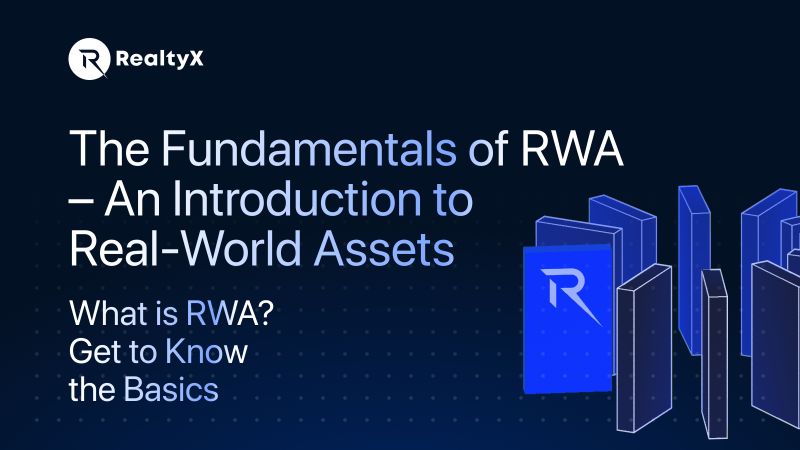Comprehensive Research Study Report on RWA Crypto Listing: An Extensive Evaluation
Intro
The cryptocurrency market has progressed substantially over the past years, with brand-new possession courses arising to bridge the space in between traditional financing and decentralized environments. One such innovative advancement is the principle of Real life Possession (RWA) tokenization. RWA crypto tasks intend to tokenize physical properties like realty, commodities, and equities, bringing them onto the blockchain. This record gives a thorough analysis of the RWA crypto listing, exploring its relevance, vital players, advantages, challenges, and future leads.

Comprehending RWA Tokenization
RWA tokenization describes the process of transforming legal rights to a real-world asset into a digital token on a blockchain. These symbols represent ownership or a case on the underlying property, making it possible for fractional possession, boosted liquidity, and openness. The RWA crypto listing includes tasks that promote this tokenization, covering assets such as:
- Property buildings
- Priceless metals like gold and silver
- Art and collectibles
- Corporate bonds and equities
- Assets like oil and farming products
Principal in the RWA Crypto Area
The RWA crypto listing includes a number of prominent projects that are leading the charge in property tokenization. Below are a few of one of the most remarkable ones:
1. MakerDAO (MKR)
MakerDAO, known for its stablecoin DAI, has ventured right into RWA tokenization by collateralizing real-world properties to back DAI. This consists of partnerships with organizations to tokenize assets like invoices and realty, enhancing the security and scalability of the DAI community.
2. Centrifuge (CFG)
Centrifuge concentrates on bringing typical finance onto the blockchain by tokenizing properties such as invoices, royalties, and realty. Its Tinlake system enables individuals to swimming pool and securitize RWAs, supplying liquidity to typically illiquid properties.
3. RealT (REALT)
RealT is a system that tokenizes property homes, making it possible for investors to buy fractional ownership in rental buildings. If you cherished this short article as well as you want to receive more details relating to How to check ethereum prices history, Recommended Online site, kindly go to our own web page. Investors earn passive revenue via rental returns, democratizing access to genuine estate financial investments.
4. Paxos Gold (PAXG)
Paxos Gold is a gold-backed cryptocurrency where each PAXG token stands for possession of one penalty troy ounce of a London Good Distribution gold bar. It combines the security of gold with the adaptability of digital assets.
5. Polymath (POLY)
Polymath gives a platform for the creation and management of safety tokens. It simplifies the compliance process for tokenizing securities, making it less complicated for conventional assets to get in the blockchain room.
Advantages of RWA Tokenization
The tokenization of real-world assets provides countless benefits, including:
1. Improved Liquidity
Standard possessions like property and art are commonly illiquid. Tokenization enables these properties to be traded on second markets, supplying investors with higher adaptability.
2. Fractional Ownership
Tokenization enables fractional possession, reducing the barrier to access for high-value possessions. Financiers can buy tiny parts of an asset, making investments more available.
3. Transparency and Protection
Blockchain technology makes sure clear and tamper-proof documents of ownership. Smart agreements automate procedures like returns circulations, decreasing the risk of fraud.
4. International Access
RWA tokens can be traded worldwide, 24/7, without the requirement for middlemans. This opens up financial investment opportunities to a broader target market.
Challenges and Threats
In spite of its capacity, RWA tokenization deals with several challenges:
1. Governing Uncertainty
The legal structure for RWA tokenization varies across territories. Compliance with securities laws, KYC/AML needs, and tax policies remains an intricate concern.
2. Possession Appraisal and Protection
Accurate appraisal of tokenized possessions is important. Furthermore, making sure the safe and secure safekeeping of physical properties backing the tokens is a logistical obstacle.
3. Market Fostering
While the principle is appealing, prevalent fostering of RWA symbols requires education and trust fund from conventional financiers and establishments.
Future Prospects
The RWA crypto industry is poised for substantial growth as blockchain innovation develops and regulatory quality improves. Key trends to watch include:
- Institutional Participation: Even more financial institutions are most likely to discover RWA tokenization to unlock brand-new revenue streams.
- Interoperability: Cross-chain solutions will enhance the liquidity and functionality of RWA symbols throughout different blockchain networks.
- Ingenious Usage Cases: Beyond traditional assets, tokenization can include intellectual property, carbon credit scores, and much more.
Final thought
The RWA crypto listing represents a transformative change in how real-world properties are possessed, traded, and handled. By leveraging blockchain innovation, these tasks use unprecedented liquidity, availability, and transparency. Overcoming governing and operational hurdles will certainly be vital for long-term success. As the community develops, RWA tokenization has the prospective to redefine worldwide finance, creating a much more inclusive and efficient market for all.
One such ingenious development is the idea of Genuine Globe Asset (RWA) tokenization. RWA crypto tasks aim to tokenize physical possessions like actual estate, products, and equities, bringing them onto the blockchain. RWA tokenization refers to the process of converting civil liberties to a real-world asset into an electronic token on a blockchain. The RWA crypto list includes numerous noticeable tasks that are leading the charge in property tokenization. The RWA crypto checklist represents a transformative shift in how real-world assets are had, traded, and took care of.
